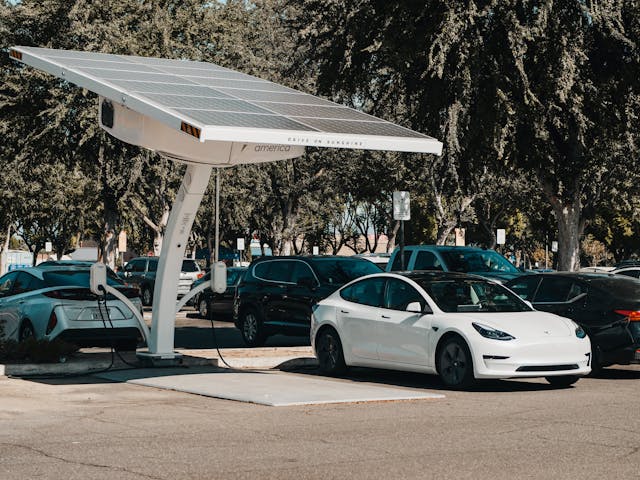Are you thinking about switching from a petrol or diesel car to an electric vehicle (EV)?
Do you want to find out more about the benefits of going electric? You’re in the right place.
Here, we’ll explore some of the environmental and financial benefits so you can decide if the switch makes sense for you.
Reduced running costs
One of the financial perks of going electric is the lower running costs.
In fact, government guidance says that “recent published independent research suggests an average saving of £700 a year”.
EVs have fewer moving parts than combustion engines, meaning lower maintenance bills. Plus, charging at home is typically cheaper than filling up with petrol.
Switching will also help you avoid or reduce charges linked to driving in low-emission zones, such as the ULEZ in London, which charges non-exempt vehicles £12.50 per day.
There are other financial costs to consider, though, such as home charger installation (if you’ll charge at home) and any increase or difference in electricity tariffs.
You should also check the cost of car insurance for any EV model you’re interested in, as it may differ from what you pay for a petrol or diesel alternative.
Grants and tax advantages
To make the switch more attractive, the UK government is offering some incentives for electric vehicles.
The Electric Car Grant scheme gives up to £3,750 off qualifying new EVs, including the Ford Puma Gen-E and Ford e-Tourneo Courier.
There are two “bands” of grant, offering either the full £3,750 or £1,500 off 28 different vehicles.
For company car users, there are tax advantages, too. The company car tax is currently 3% for EVs, which is set to go up to 5% in April 2028.
This is favourable compared to the most polluting cars, which will pay 37% company car tax in 2028.
Environmental impact
On the eco side, EVs offer numerous advantages. Petrol and diesel cars emit harmful pollutants into the atmosphere, including carbon dioxide, nitrous oxide and particulate matter.
While the manufacturing process does create waste, EVs produce zero tail‑pipe emissions, meaning you’re not contributing to local air pollution with your daily drives.
It also means you’re less reliant on fossil fuels, particularly if you’re getting electricity from renewable energy sources like solar and wind.
Another benefit is that electric cars are quieter than petrol and diesel models, which can help to lower noise pollution.
These are just some of the benefits of choosing an EV. Will you make the switch?




